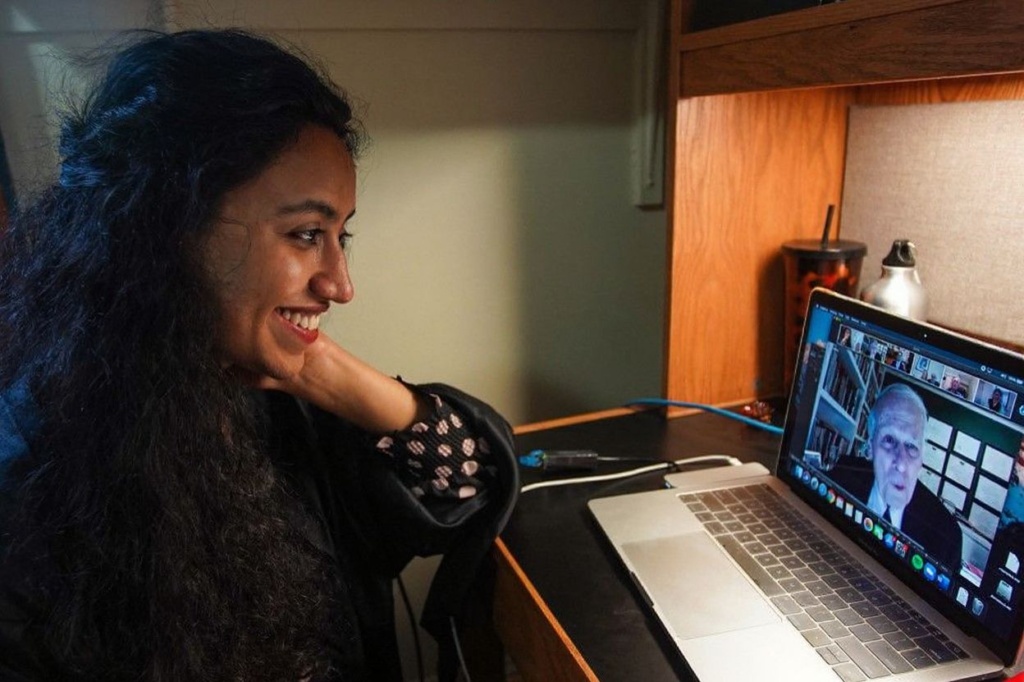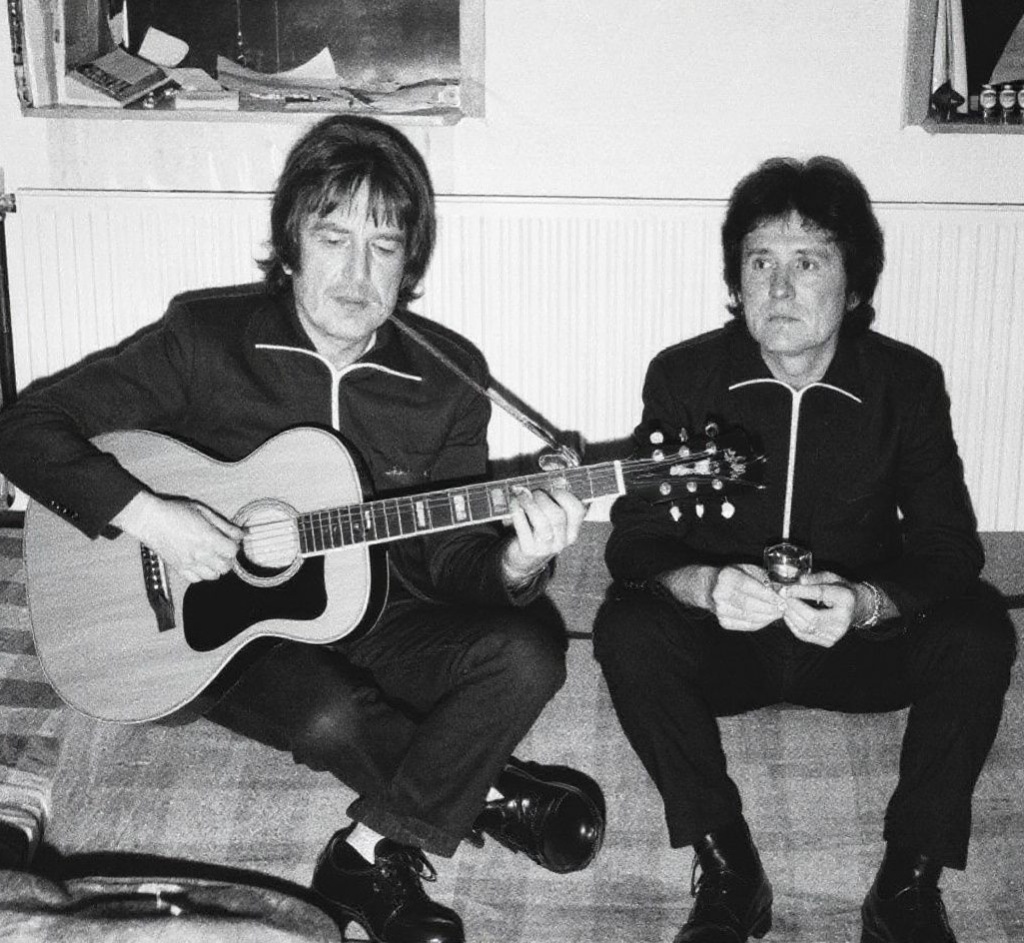
Calling a degree “useless” is a little harsh, but when you have career experts saying that and many articles listing the most useless degrees today, then maybe they’re onto something.
As the news cycle frantically swings between telling us a university degree isn’t essential (for jobs at big multinationals, no less!) or that it still is because there’s data that says so, the reality is that people still think of university as the next step after high school.
And when it comes to choosing a subject, many still look up what degrees will take them the furthest in life.
The saying goes: “Value is always in the eye of the beholder”, but where does the line get drawn?
Why spend the long years and pay the pricey tuition fees when you can learn it all online?
Realistically, how much can you earn with a degree that has little to no career growth and prospects? Is the world even hiring – do they even need you?
So when you have whiplash from following your passion in one moment and being told that it’s terrible advice in the next, take heart that no one has the perfect answer to these important questions.
 Who decides what are the most useless degrees in the world?
Who decides what are the most useless degrees in the world?
Useless or useful, the world always has a say in it
We are familiar with the “Is there a doctor on board?” scenario. If you’re not, it goes like this: imagine you’re taking a flight, and a medical emergency ensues.
Someone is asking if there’s a doctor on board, and the situation plays out based on the answer.
The world definitely had a fun time making self-deprecating memes out of it in 2019.
A general rule of having a “useful” degree can be boiled down into one question: how often does it come up in a real-world situation, like an in-flight medical emergency?
The science, technology, engineering and mathematics (STEM) degrees often see praise, leaving the humanities – which includes the arts, history, literature, philosophy and languages – in the dust.
But the world evolves, and we adapt to it.
As a degree, advertising and marketing have sat at the bottom ranks of some lists.
The communications degree sees slander on the daily. Journalism topped the list of most useless degrees in 2011 in a report by Business Insider.
But digital marketing reigns supreme in recent years, making it to LinkedIn’s Top 10 Most In-Demand Jobs of 2020.
Communication skills are number 2 two LinkedIn’s Most In-Demand Skills for 2023 – something that most communication majors have in spades.
Journalists are always at the scene of world-shattering events: the pandemic, wars, natural disasters, and more to report breaking news.
Sure, strange and unique degrees pop up over time. But sometimes, writing them off as a useless degree is short-sighted.
 Every year, students around the world commit to choosing a university programme with hopes that it can be something that helps propel their future prospects.
Every year, students around the world commit to choosing a university programme with hopes that it can be something that helps propel their future prospects.
Do the most useless degrees land jobs?
Getting a job nowadays is different than how it used to be.
Who can blame it though? After a couple of years of pandemic-disrupted learning, graduates are forced to navigate an unsteady job market teeming with lay-offs, inflation, and major shifts in workplace norms.
In the past, most businesses required diplomas and degrees – any form of certification you have completed in a course of related studies.
For example, you needed a degree in management to qualify for a managerial position.
Of course, that’s not to say anyone can now do anything sans a degree – certain jobs require specific degrees in their respective fields.
A patient in a hospital wouldn’t want a pilot operating on him, nor would a coder be able to design the next viral Uniqlo bag.
But things are changing, and sometimes, you don’t always need a degree for a job.
There have also been multiple instances of graduates working at jobs unrelated to their field of study.
Research shows that one in five college graduates actually end up in jobs unrelated to their major, while 34% of employed college grads could have gotten their current jobs without a college degree.
In today’s job landscape, managers and bosses have come to appreciate an applicant’s skills and practical experience.
In recent years, insights from LinkedIn have shown that recruiters on the platform are five times more likely to search for potential hires by skills instead of degrees.
Unsurprisingly, skills-first hiring practices boost overall quality, expand the company’s talent pool, and increase diversity.
Companies have started to value a person’s ability to communicate well, think critically and manage risks over having a decent exam score.
So even if you studied something else, you’ll still have the flexibility to apply for a position unrelated to your degree.
Which begs the question once again: is a degree truly useless?
 Career days at school can offer valuable peeks into their future jobs, as they often involve people from the field speaking about their personal experiences.
Career days at school can offer valuable peeks into their future jobs, as they often involve people from the field speaking about their personal experiences.
No degree is useless
In today’s world, some degrees are considered the most useless degrees for the following reasons:
- Low salary/not profitable
- Lack of job opportunities
- Severe competition
- Expensive with no promise of return-on-investment
- No on-field experience
- People eventually go on to do something different than their degree
But despite how many aunties and uncles you’ll hear passionately arguing why degrees A, B, C are the world’s most useless degrees, the fact is this: no degree is “useless” and students should be encouraged to study what they’re truly passionate about.
Telling students that only certain degrees or fields of study are worth their time will damage their self-esteem or altogether cut them off from a future that fulfils and even pays them well.
And telling anyone their passion is worth nothing to others is just not cool.
This type of opinion perpetuates the idea that some degrees are inherently better than others, which is untrue.
People perceive a degree as “useless” because of their own personal views. There’s no data or stat to definitively back it up.
And society has another set of expectations about what degrees are more important — for example, science or technology degrees might be seen as more valuable than arts or humanities degrees.
In some places, how rich your family is may prevent students from majoring in so-called useless degrees – low-income students are pressed to pick“useful” majors such as medicine or law, while wealthier students are allowed to have freedom of choice, as they do not need to focus on being employable after graduation.
 Fine arts is another programme that people believe is hard to make a living out of. In the novel “The Picture of Dorian Gray”, Oscar Wilde closes the preface with the words “All art is quite useless.”
Fine arts is another programme that people believe is hard to make a living out of. In the novel “The Picture of Dorian Gray”, Oscar Wilde closes the preface with the words “All art is quite useless.”
In short, he meant it as praise – yes, without art, life on earth could continue, but it would be dull and not worth living.
Useless degrees in fields such as art, music, literature and philosophy – these are the things that give joy and meaning to our short lives.
If one were to purely live by making decisions solely based on expected monetary return, it would be a rather soulless way of living.
Knowledge is always valuable, and anything which helps anyone develop a deeper understanding of the world will always be beneficial.
 Around 75% of people with a bachelor’s degree in Sociology work in social services, administrative support, management, teaching, librarianship, research, or marketing.
Around 75% of people with a bachelor’s degree in Sociology work in social services, administrative support, management, teaching, librarianship, research, or marketing.
4 most useless degrees, their backgrounds, and what makes them useful
Sociology
Google “sociology degree,” and chances are that the result “sociology degree useless” will pop up – which is inherently untrue.
The definition of sociology is the study of society and human social behaviour, where you study how society interacts with each other.
It also addresses society and its problems from a broader perspective, considering culture and history, even things like religion, politics and psychology.
A sociology degree has a somewhat undeserved reputation for being a useless degree, as most people think it offers a poor return on investment.
But it actually overlaps with more respected subjects such as economics, politics and even law.
Graduates can become consultants, advice workers or probation officers, or even work in law, education, youth welfare and charity organisations.
The most famous example of a successful figure of sociology is Karl Marx, the founding father of the science itself. He was well known for his ideas and theories on socialism and communism.
A more recent example would be Patricia Hill Collins, a respected university professor of sociology who reconceptualises the ideas of race, class, gender, sexuality and nationalism as interlocking systems of oppression.
 The most successful photographers capture history.
The most successful photographers capture history.
Photography
Anyone can take a photo, right?
Well, yes and no. Anyone can take a photo, but only some are photographers.
In this age, thanks to smartphones and quick editing apps, everyone has access to great cameras in the palm of their hand.
With social media, more people are becoming photo enthusiasts, seeking the perfect Instagram photo, but fewer are pursuing professional photography careers. Hence, there goes photography into the list of most useless degrees.
It can be rather discouraging to get into the business of professional photography as more people are less than willing to pay photographers their worth.
Although admittedly, it can be rather funny when people insist their iPhone 15 Pros are better than wedding photographers.
To be truly successful in the field, photographers have to know the business and the people and be able to market themselves as a business.
That’s what a degree can help develop, allowing graduates to explore job options like content creators, video editors, retouchers or art directors, so they’re not strictly tied down to pressing a button on a camera.
Annie Leibovitz took on a major at the San Francisco Art Institute and is now a famous American photographer renowned for her dramatic yet quirky portraits of celebrities, including Rihanna, Mark Zuckerberg and even Queen Elizabeth II.
She’s also most well known as the person who took the last picture of John Lennon five hours before he was murdered.
History
You might think of them as nerds with little to no job prospects, but you must give credit where it’s due.
Any form of degree with “history” in its context gets its share of mockery; be it art history or archaeology, no one is spared.
In a history degree, students explore the full spectrum of human experience.
Here, they develop independent critical thinking, analytical skills, the ability to process and synthesise vast amounts of information, and, of course, engage in historiographical debates.
This makes it sound like there’s no real job for graduates besides jobs revolving around dusty texts, but this flexibility is how most history graduates move on to diverse careers. From education to management, the degree is a versatile one.
It’s also how US history graduates earn US$143,000, a major US$49,000 more than their pre-law counterparts.
Plus, you’d be surprised by the number of famous people with a history degree – including three US presidents:
- Joe Biden
- George Bush
- Franklin Roosevelt
 New Zealand overtook Bali as Australia’s top travel destination for summer 2023.
New Zealand overtook Bali as Australia’s top travel destination for summer 2023.
Tourism
Despite being one of the world’s largest industries, tourism degrees show up unfavourably in terms of usefulness.
They often come as a pair with a travel or hospitality degree, covering destination marketing, customer service, and event management.
With the prevalence of social media, what need is there for a tourism degree when you can just all share your travel tips and thoughts unprompted?
There are people without tourism degrees dedicated to posting about their travels, sharing the best itineraries and stories they can with an audience that is always hungry for more.
While there are complaints about travel influencers ruining the travel experience, tourism boards are on board with these travel influencers too.
New Zealand’s Wanaka saw a 14% increase in tourism growth when they invited a bunch to post about their adventures in the small alpine town.
And even if the pandemic severely impacted the industry, it’s making a fast recovery. From Bangkok to the Dominican Republic, the globe is quickly picking things up where it left off, and it will need qualified people to help run it.










